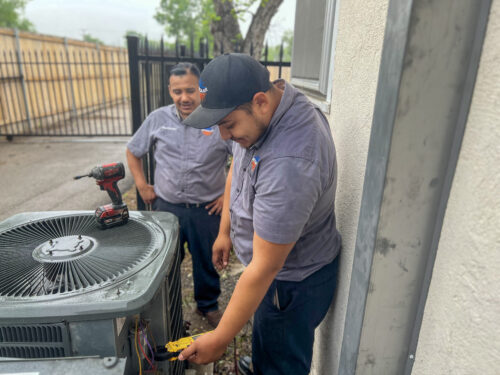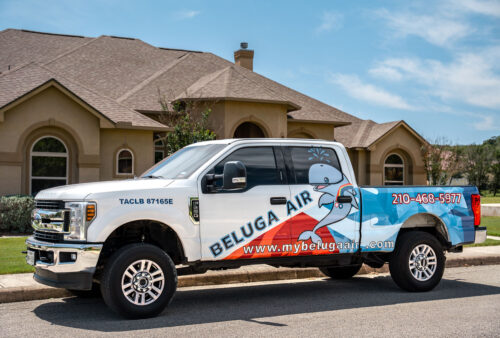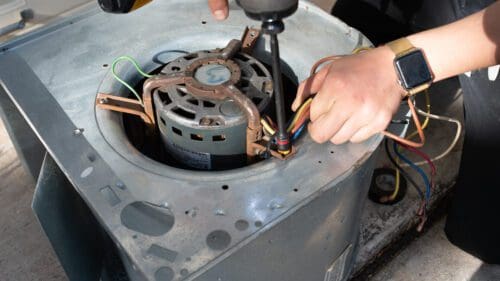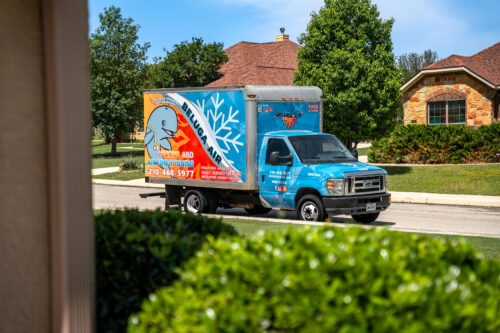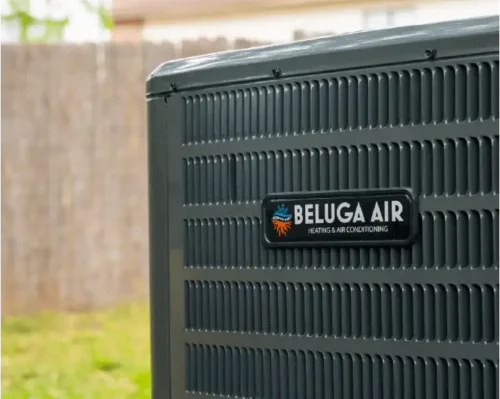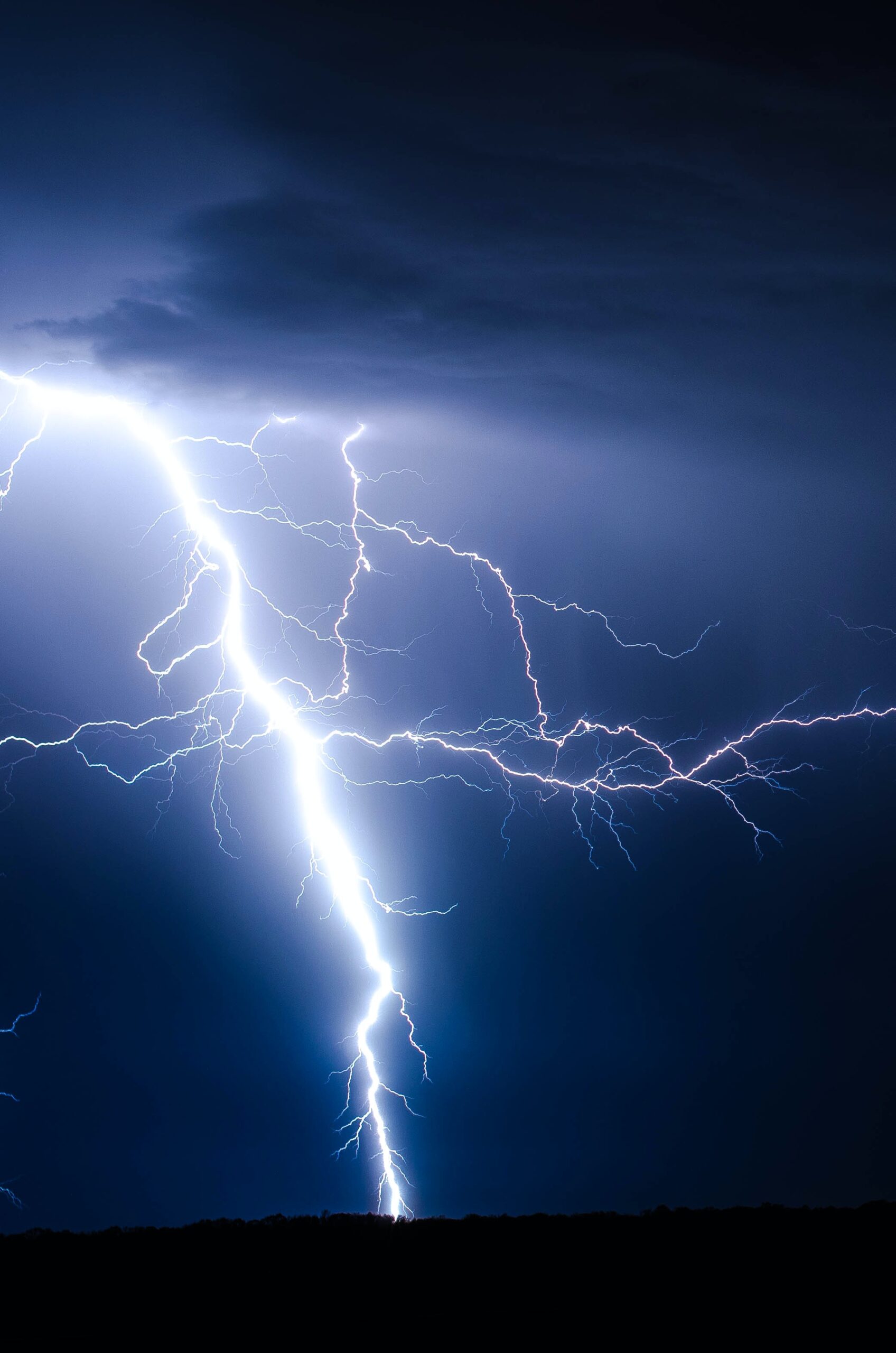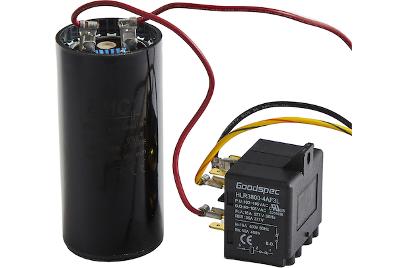When it comes to maintaining your home or office, issues with heating and air conditioning (HVAC) as well as plumbing can be common. However, these two types of problems require very different solutions. Knowing how to tell the difference between an HVAC issue and a plumbing issue can save you time and money, as well as prevent further damage to your property.
HVAC Issues
HVAC systems are responsible for keeping your living and working spaces warm in the winter and cool in the summer. However, there are a few common issues that can occur with these systems:
1. No Air Flow: If you turn on your HVAC system and no air flows through the vents, you could have a problem with your blower motor or a clogged air filter.
2. Poor Air Flow: If your HVAC system is producing weak or uneven airflow, there may be a blockage in the ductwork or a problem with the blower motor.
3. Strange Noises: Unusual sounds coming from your HVAC system could indicate a problem with the compressor or fan motor.
4. Leaks: If you notice water pooling around your HVAC unit, it could be a sign of a refrigerant leak, which can be harmful and requires professional attention.
5. Inconsistent Temperatures: If some rooms in your home or office are too hot or too cold while others are comfortable, there may be an issue with the ductwork or thermostat.
Plumbing Issues
Plumbing issues, on the other hand, involve the pipes and fixtures that bring water in and out of your building. Here are a few common plumbing problems to look out for:
1. Leaks: Leaks can occur in any part of your plumbing system, and they can cause water damage, mold growth, and high utility bills.
2. Low Water Pressure: If your water pressure is weak or inconsistent, it could be due to a clog in your pipes or an issue with your pressure regulator.
3. Clogs: Whether it’s a clogged sink or a backed-up toilet, clogs can be frustrating and unpleasant. They can be caused by a buildup of hair, grease, or other debris in your pipes.
4. Strange Smells: If you notice a foul odor coming from your drains, it could be a sign of a sewage backup or other plumbing issue.
5. Burst Pipes: When pipes freeze or corrode, they can burst and cause significant water damage. This is why it’s important to keep your pipes insulated and well-maintained.
How to Tell the Difference
While there are some commonalities between HVAC and plumbing issues, there are also some key differences that can help you determine which type of problem you’re dealing with. Here are a few guidelines:
1. Check the Symptoms: Pay close attention to the symptoms of the problem you’re experiencing. For example, if you notice water pooling around your HVAC unit, it’s likely an HVAC issue. If you have low water pressure throughout your building, it’s probably a plumbing issue.
2. Consider the Location: The location of the problem can also give you clues about whether it’s an HVAC or plumbing issue. HVAC problems are typically confined to the unit itself or the ductwork, while plumbing problems can affect multiple areas of your building.
3. Look for Additional Signs: If you’re still unsure about the cause of your problem, look for additional signs. For example, if you’re experiencing inconsistent temperatures and strange noises from your HVAC system, it’s likely an HVAC issue. If you have leaks and clogs in your sinks and toilets, it’s probably a plumbing issue.
What to Do
If you’ve determined that you have an HVAC issue, it’s best to call a professional HVAC technician to diagnose and repair the problem. Trying to fix it yourself could result in further damage and even personal injury. On the other hand, if you have a plumbing issue, you may be able to fix it yourself if it’s a simple clog or leak. However, if the problem is more complex, it’s best to call a licensed plumber to help you.
Conclusion
Knowing how to identify the difference between HVAC and plumbing issues can save you valuable time, money, and effort. By paying close attention to the symptoms, location, and additional signs, you can determine the cause of the problem and take appropriate action. Remember, when in doubt, it’s always better to call a professional who can diagnose and repair the issue safely and effectively.
If You’re Having HVAC Problems Please Don’t Hesitate To Call Us. We’d be happy to answer any questions or get you on the schedule for a free estimate.
